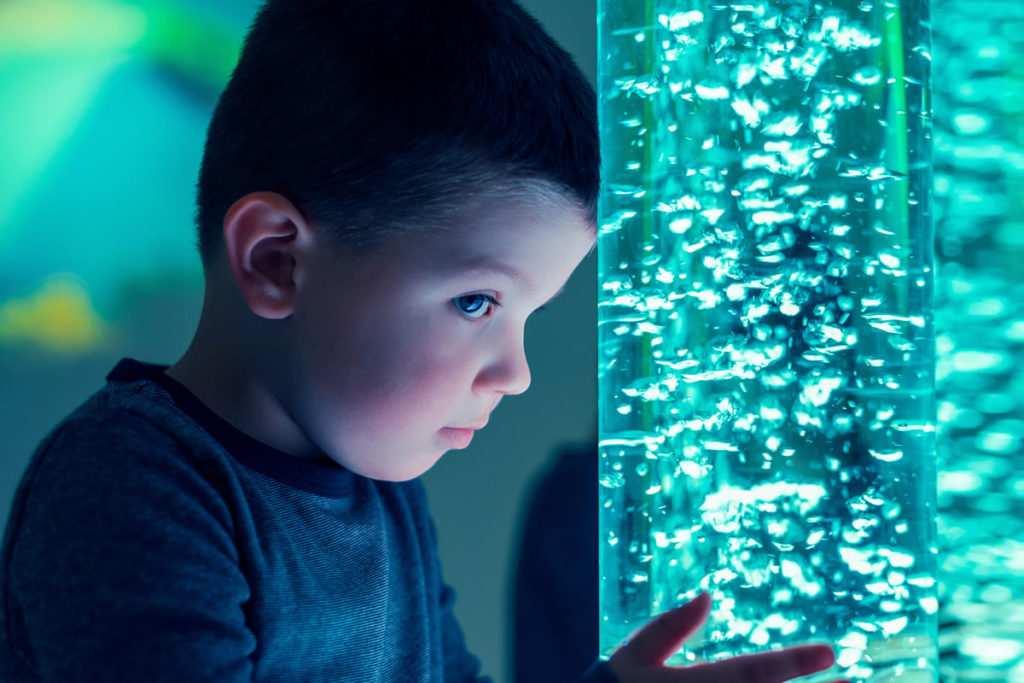Autism Spectrum Disorder or Autism is a developmental and neurobiological disorder that affects the way a person communicates and relates to others. It is usually diagnosed before three years of age and can affect children from anywhere in the world.
One of the most common characteristics of this disorder is that autistic children often seem to be in a world of their own, completely alien to others. This is largely due to the fact that they process and respond to information in a way that is different from what is considered “normal ”. With regard to this and the rest of the characteristics, autism can be classified from mild to severe, and each child can show completely different attitudes and variants, being something that can accompany the person for life, requiring great or relative supervision .
Although the symptoms can be very varied and each case is different, some of the most common are:
- Inappropriate laughing or crying.
- Outbursts, some aggressiveness.
- Extremely hyperactive or not very active behaviors.
- Difficulty interacting with other children.
- Irritation from changes in routine.
- Little or no eye contact.
- Inability to read body language or facial cues.
- Making gestures to communicate.
- Problems expressing wishes.
- Abnormal speech patterns , such as repeating what was said.
- Inability to have a meaningful conversation.
- Fixation on an object, such as rotating objects.
- Distance, indifference.
- Lack of response to verbal requests.
- Repetitive behaviors such as flapping, rocking, head banging, or finger snapping .
- Little fear with insensitivity or hypersensitivity to pain.
- Hyperactive or underactive sensitivity to sounds, lights, touch, or smells.
- Impaired gross and / or fine motor development.
- Sensory integration problems.
Some autistic children can present most of these characteristics, while others have only some, and that is, as we said, the symptoms can vary greatly in intensity and frequency from one person to another.
Although numerous research studies are underway, specific causes that may explain autism have not yet been established. A variety of conditions that affect brain development before, during, or after birth can contribute to a child developing autism, but the truth is that there is no blood test or brain scan that can be used to determine this disorder. what the diagnosis is based on observing the behavior of children.
Autism has no cure, mainly because its specific origin is still unknown, but there are certain types of stimulation, development and learning that are useful for autistic children to greatly improve their quality of life and future. Specialized education can reduce dysfunctional behaviors and increase the development of specific skills that can contribute to a child’s quality of life. In some cases, medication can also alleviate various symptoms, always consulting a medical professional who can guide families in their particular case. As children develop and receive individualized instruction, the characteristics of autism can diminish considerably.
Other forms of autism: Asperger’s Syndrome
Another type of autism is known as Asperger Syndrome , which is a high-functioning form of autism. It describes children who are often preoccupied with a particular topic and have average or above average intelligence. Children with Asperger syndrome tend to think very literally, which makes it difficult for them to understand some conversations, such as double meanings. Your voice may sound emotionless and your speech may be repetitive or forced. When conversing, they often appear to be self-centered, and may also have an unusually accurate memory for details or show little interest in what others think. As with autism, there is no specific treatment for children with Asperger’s Syndrome. However, it should be borne in mind that many people identified with the disorder can lead relatively normal, productive and independent lives, although they are often victims of intolerable, intransigent behavior , harassment or bullying.
The role of educators and families
Many educators are charged with helping autistic children reach their full potential by providing them with academic training and social, communication, and motor skills. Individualized educational plans should be established, especially for those children whose needs cannot be met in a regular classroom. It is important to bear in mind, in this sense, that autistic children may have difficulties learning outside of a structured environment , although many others can participate in classroom activities and gradually complete their tasks. Remember that each autistic child is unique and should be considered as such.

Families with autistic children can and do have problems, often related to anxiety or stress, and we cannot forget that these children often require a lot of supervision, understanding and constant care. This affects parents’ concerns, fear of being misunderstood, feeling isolated and different, or worrying excessively about their absence and the future of their children. Psychological and professional help can be very beneficial to advance . Educators and autism specialists can recommend special support services and always be an important channel of communication between children and their families. Without a doubt, understanding, affection, empathy, collaboration, and love are some of the most important keys to understanding and experiencing this disorder. That is why it is so important to know how to put ourselves in the place of others, because it helps us discover that there are different ways of facing the world , some very hard and complex, and that all must have a place in it … as they are a sign of its incredible diversity .











































































































